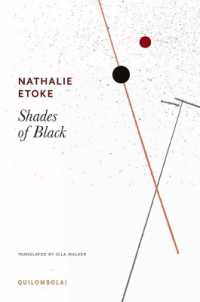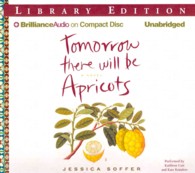- ホーム
- > 洋書
- > 英文書
- > Literary Criticism
Full Description
This volume presents a complex portrait of the United States of America grappling with the trials of national adolescence. Topics include (but are not limited to): the dynamics of language and power, the treachery of memory, the lived experience of racial and economic inequality, the aesthetics of Indigeneity, the radical possibilities of disability, the fluidity of gender and sexuality, the depth and culture-making power of literary genre, the history of poetics, the cult of performance, and the hidden costs of foodways. Taken together, the essays offer a vision of a vibrant, contradictory, and conflicted early US Republic resistant to consensus accountings and poised to inform new and better origin stories for the polity to come.
Contents
1. Introduction: 'Transitions' William Huntting Howell and Greta LaFleur; I. Form and Genre: What Do We Have Here?: 2. The Law of the Form and the Form of the Law Matthew Garrett; 3. The Statesman's Address Sandra Gustafson; 4. Vocabularies and other Indigenous-Language Texts Sean Harvey; 5. The Genteel Novel in the Early United States Thomas Koenigs; 6. The State of Our Union: Comedy in the Post-Revolutionary US Theatre Heather Nathans; 7. 'To assume her Language as my own': The Revival Hymn and the Evangelical Poetess in the Early Republic Wendy Roberts; 8. 'Little Secrets': Taste-Making and the Rise of the American Cookbook Elizabeth Hopwood; II. Networks: 9. Modern Bigotry: The War for the Ohio, the Whiskey Rebellion, and the Settler Colonial Imagination in the Early Republic John Mac Kilgore; 10. 'This Politick Salvage': Defining an Early Native American Literary Aesthetics Drew Lopenzina; 11. Logics of Exchange and the Beginnings of US Hispanophone Literature Emily García; 12. The Emigrationist Turn in Black Anti-Colonizationist Sentiment Kirsten Lee; 13. The Black Child, the Colonial Orphan, and Early Republican Visions of Freedom Anna Mae Duane; III. Methods for Living: 14. The Affective Post War Michelle Sizemore; 15. Revolutionary Lives: Memoir Writing and Meaning Making during the American Revolution Michael McDonnell and Marama Whyte; 16. Literature of Poverty and Labor Lori Merish; 17. Neuroqueering the Republic: The Case of Charles Brockden Brown's Ormond Sari Altschuler; 18. A Queer Crip Method for Early American Studies Don James McLaughlin.







